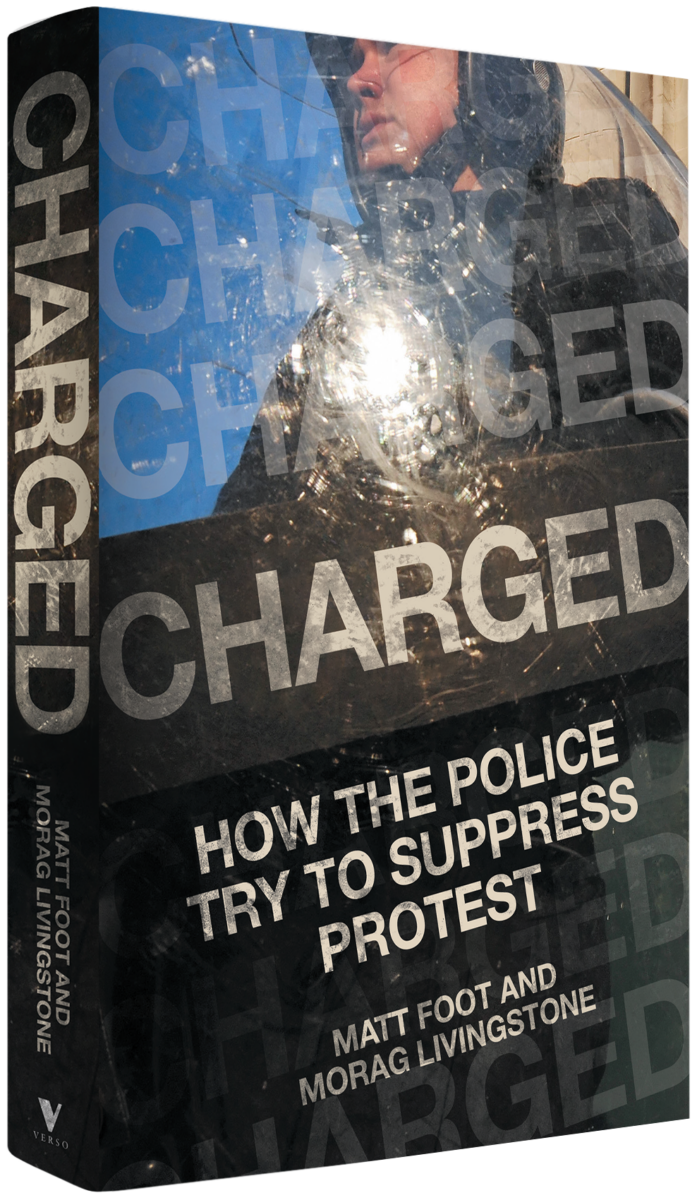Source > Verso blog
Since the 1980s police in the UK have been allowed to suppress protests by using aggressive tactics—from batons to horse charges to kettling. Military-style tactics were sanctioned by the Thatcher government and, over the next forty years, those protesting were subject to brutal treatment at the hands of the police.

Charged: How the Police Try to Suppress Protest is an essential investigation into the role of policing protest in Britain today. As the UK government tries to suppress all forms of dissent, in their pursuit of more control, how do the police manage crowds, provoke violence and even break the law?
In this Verso podcast episode Ben Smoke, journalist and editor at Huck Magazine, speaks with Matt Foot and Morag Livingstone, authors of Charged: How the Police Try to Suppress Protest.
Art Book Review Books Campism Capitalism China Climate Emergency Conservative Government Conservative Party COVID-19 Creeping Fascism Economics EcoSocialism Elections Europe Far-Right Fascism Film Film Review Fourth International France Gaza History Imperialism Israel Italy Keir Starmer Labour Party Long Read Marxism Marxist Theory Migrants Palestine pandemic Police Protest Russia Solidarity Statement Trade Unionism Trans*Mission Transgender Ukraine United States of America War

